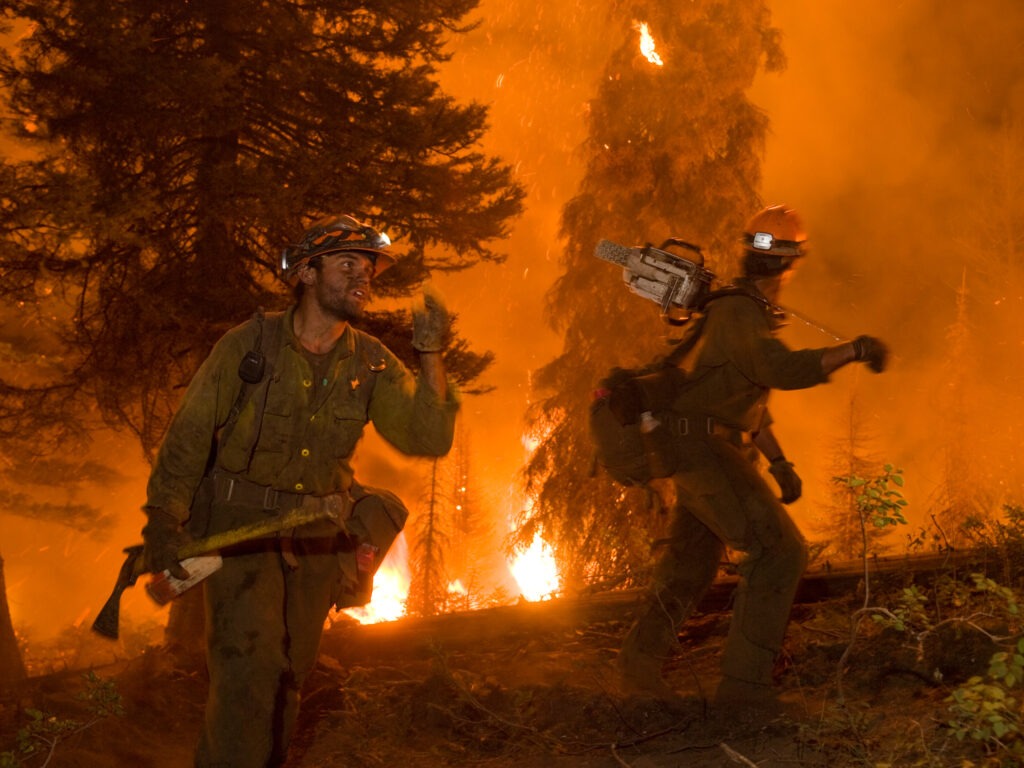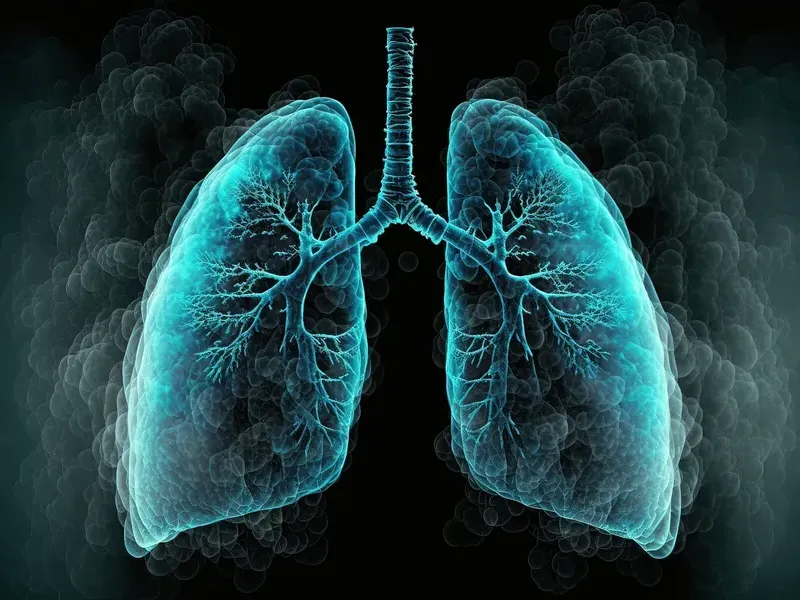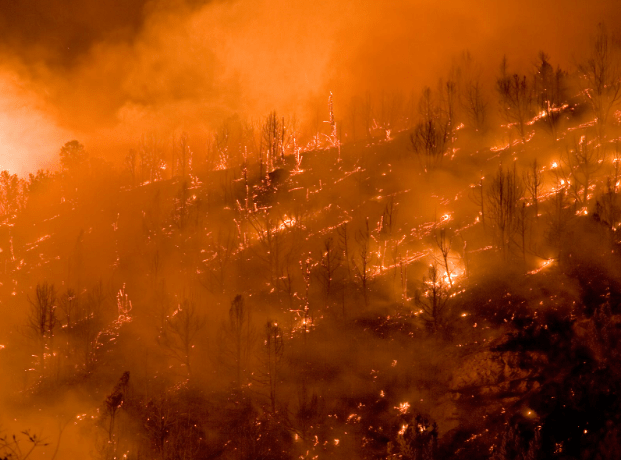Wildfires, while a natural part of some ecosystems, come with a significant and often overlooked consequence, the impact on human health. The smoke and particulate matter released during these events can have both immediate and long-term effects on individuals. These can range from minor irritations to severe respiratory and cardiovascular conditions, profoundly impacting the quality of life. However, with vigilant prevention and effective restoration measures, we can mitigate these risks. That's why it is essential to consider hiring professionals like Wildfire Pros. They are equipped to guide you through preventative steps to safeguard your environment against wildfires, and can also provide rehabilitation services in the unfortunate occurrence of a wildfire event. Act now to protect your health and environment.

The Spring Fire, Banks-Garden Valley, Idaho, Boise National Forest, August, 2012; Idaho City Hotshots
In the immediate aftermath of a wildfire, the most prevalent health threats arise from the dense smoke and airborne particulate matter. These air pollutants can cause a variety of respiratory problems, including asthma attacks, bronchitis, and other chronic obstructive pulmonary diseases. In addition, the heavy smoke often leads to reduced visibility, causing accidents and posing a danger to those in the vicinity of the fire. The intense heat of wildfires can also result in direct physical injuries such as burns and heat strokes. The stress and anxiety associated with such a disaster can instigate short-term psychological impacts
One of the most immediate and visible health consequences of wildfires is the degradation of air quality. The thick smoke produced during a wildfire contains a toxic mix of fine particulate matter (PM2.5), carbon monoxide (CO), volatile organic compounds (VOCs), and other hazardous substances. These pollutants can irritate the respiratory system, leading to a range of health issues:
People with pre-existing respiratory conditions such as asthma, bronchitis, or chronic obstructive pulmonary disease (COPD) are particularly vulnerable and may experience exacerbated symptoms or even life-threatening complications.
Wildfire smoke exposure is not limited to the lungs; it can also have profound effects on the cardiovascular system. Studies have shown that the fine particles in wildfire smoke can enter the bloodstream, increasing the risk of heart attacks, strokes, and other cardiovascular problems, particularly in older adults and those with underlying heart conditions.
The mental health impact of wildfires is often underestimated, yet cannot be overlooked. The fear and uncertainty provoked by an advancing fire can trigger acute stress responses and psychological trauma, particularly among those who have to evacuate their homes. Post-traumatic stress disorder (PTSD), depression, and anxiety disorders are common in the aftermath of such destructive events. Displacement and the loss of personal property can lead to prolonged stress and emotional distress, compounded by the grief of losing cherished personal items or entire homes. Thus, the psychological impact of wildfires, extending far beyond the event itself, necessitates significant attention and care.

The detrimental health effects of wildfires can persist long after the fires have been extinguished, leaving an indelible scar on communities. These chronic impacts are wide-ranging, reflecting the extensive damage that wildfires inflict on the environment and human health. The long-term health consequences can include lingering respiratory and cardiovascular ailments, persistent mental health issues, and an increased susceptibility to various diseases. The following sections will delve deeper into these long-term health impacts of wildfires, underscoring the necessity for better wildfire management and prevention strategies
Exposure to wildfire smoke, even for a short period, can have long-lasting consequences. Individuals exposed to wildfire smoke may develop chronic respiratory conditions like bronchitis, mesothelioma, or a decline in lung function over time. Children, in particular, are susceptible to these long-term respiratory effects. (For more information on mesothelioma and its impact on your health, please visit the Mesothelioma Lawyer Center.)
Prolonged exposure to wildfire smoke weakens the immune system, making individuals more susceptible to respiratory infections such as pneumonia and bronchitis. This heightened vulnerability can persist for months after a wildfire event.
Wildfires can also deepen economic and social disparities within affected communities. Individuals and families who were already financially vulnerable before the disaster may find it difficult to recover their losses, given the high costs associated with home repairs or rebuilding, and the potential loss of employment during recovery periods. Health care costs associated with treating wildfire-related illnesses can further strain their limited resources. These disasters can disproportionately affect marginalized communities, lacking the means to relocate or access quality healthcare. Thus, wildfires not only represent an environmental challenge but also a significant social equity issue that requires comprehensive solutions.
Being proactive in wildfire management is crucial to minimizing the devastating impacts these natural disasters can have on communities and ecosystems. One effective way to be proactive is by engaging the services of professionals like Wildfire Pros. As dedicated professionals in this field, they play an essential role in both preventing wildfires and mitigating their impact. In the domain of prevention, Wildfire Pros work diligently on the frontlines to identify potential wildfire hazards in the environment, implementing preventive measures such as controlled burns and firebreaks to reduce the risk.
They also take the lead in preparing communities for potential wildfires, educating residents on creating defensible spaces around their homes, and developing evacuation plans that ensure their safety in the event of a wildfire. When wildfires do occur, the Wildfire Pros are often among the first on the scene, working tirelessly to contain and control the blaze, thereby minimizing its spread and impact. And their work doesn't end there. Following a wildfire, they play a pivotal role in restoring the affected ecosystems to their natural state and assisting communities in the rebuilding process. Their comprehensive services make Wildfire Pros an invaluable partner in community protection against wildfires.

The Burning Impact
The health impacts of wildfires are far-reaching, affecting both individuals and communities in the short term and the long term. From respiratory problems to mental health challenges, wildfires take a significant toll on human well-being. However, with proactive wildfire prevention measures and the dedication of professionals like Wildfire Pros, we can reduce the risk and mitigate the consequences of these destructive natural events. It is imperative that we continue to invest in research, education, and resources to protect both our environment and our health from the burning consequences of wildfires.